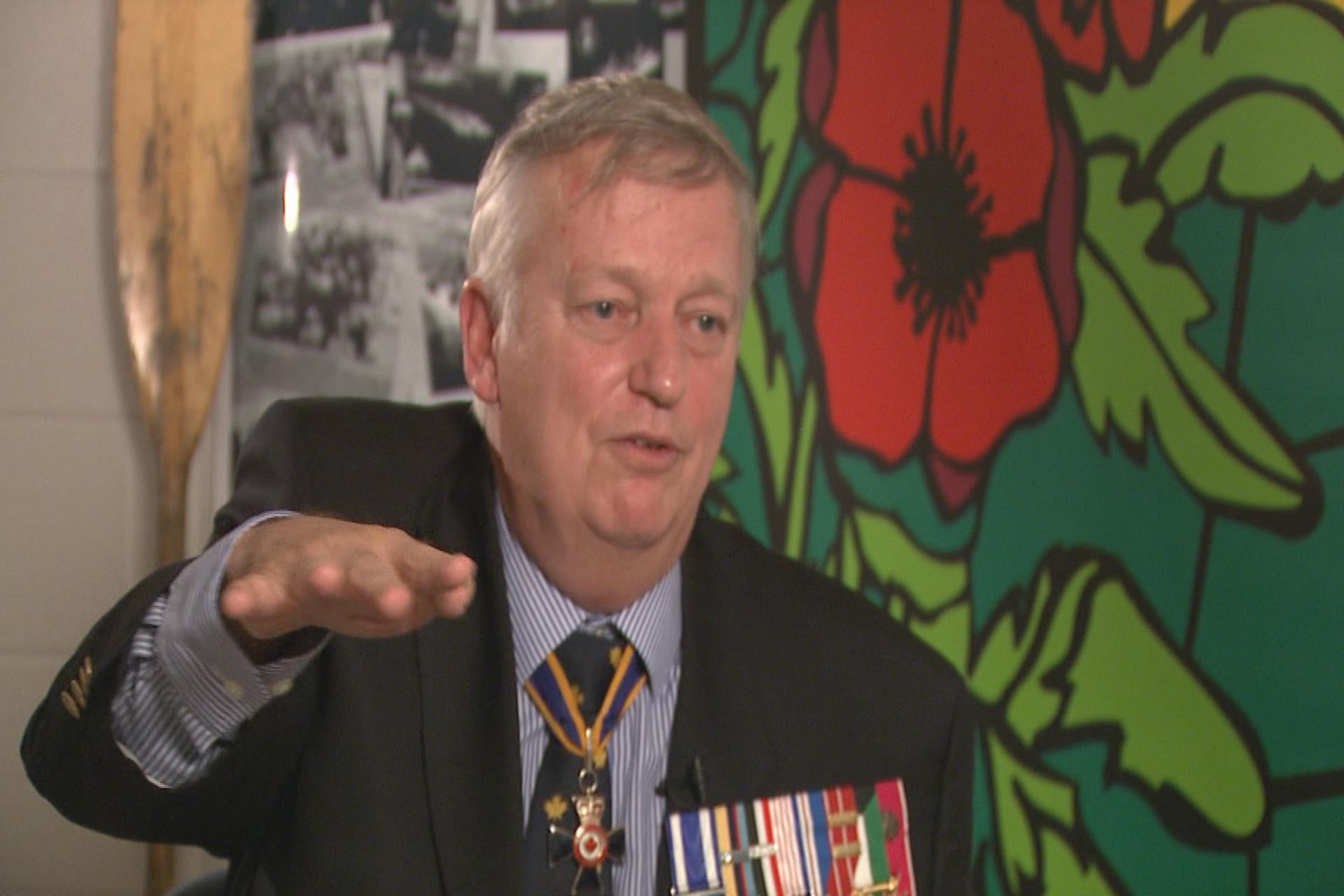Rules of Engagement at Sea
Heroes Remember
Rules of Engagement at Sea
Transcript
We operate in peacetime under a
series of rules of engagement.
So you are not allowed to draw your gun
on somebody unless there’s a reason for it.
When we were sailing there,
we had set rules that said, you are,
if you come across a ship that isn’t
doing what you’re asking it to do,
you are authorized to fire a shot across
the bow of that ship without
asking us again or without…
Normally in peacetime right now the ship
would say look I’ve come across something
strange here and I really think I better
get it to stop and I’m asking permission to
fire across the bow and that had to
go to the headquarters, has to go to the
government and this happened before
the Gulf War, it took two days to get the
response back; well the ship’s gone, you know.
We had to have some of those things
pre-given to us and then all of the ships
captains had to know what that was.
And then when it was apparent that force
was going to be used against Iraq and Iraq
was declared the enemy of the allied forces,
not just the enemy of Kuwait, the rules are
quite specific that you shoot at anything Iraqi.
You know you ask questions later basically and
that’s the rules that you are under as soon
as the missiles start going.
So we all had to know these rules.
We took a lawyer.
I had a lawyer on the task group staff
for all sorts of reasons.
The boundaries of the maritime area in
the Persian Gulf are still under
dispute in some countries.
Some you can’t sail into certain areas
without the permission of the country itself.
So we had to know what those were and
we had to have a lawyer to ensure .......????
if we were going to do something or sail
into a port without the permission of the country,
what legal legs do we have to stand on here.
And if we shoot somebody down and it happens
to be wrong what’s the legalities of all that.
Or if we shoot the enemy down and
it’s valid then it better be,
what do we have to document?
What do we have to record?
What do we have to make sure that
in the aftermath when everybody is
sitting back home saying,
“Well, you shouldn’t have done that!”
we have to say, “Yes, we should have,”
because we asked the legal opinion,
we recorded everything we did,
we made all of these communications and
then we fired, you know.
So all of that has to known by
each of the ships that are out there.
Description
Vice Admiral Miller explains the significance of rules of engagement while at sea and the restrictions placed on the sailors should they be in harm’s way.
Duncan “Dusty” Miller
Born in the United Kingdom, Duncan “Dusty” Miller immigrated to Canada in 1954. At the age of 15 and having a strong desire to join the military, Mr. Miller went to the recruiting centre but could not be accepted until 16 years of age. He then attended Bishop’s University in Lennoxville. During his career, Mr. Miller rose to the rank of Vice Admiral where he became the Naval Task Commander aboard HMCS Athabaskan during the Persian Gulf War. Vice Admiral Miller later retired from the military and now resides in Halifax, Nova Scotia.
Meta Data
- Medium:
- Video
- Owner:
- Veterans Affairs Canada
- Recorded:
- February 26, 2016
- Duration:
- 2:51
- Person Interviewed:
- Duncan “Dusty” Miller
- War, Conflict or Mission:
- Canadian Armed Forces
- Location/Theatre:
- Persian Gulf
- Battle/Campaign:
- Gulf War
- Branch:
- Navy
- Units/Ship:
- HMCS Athabascan
Related Videos
- Date modified:

















